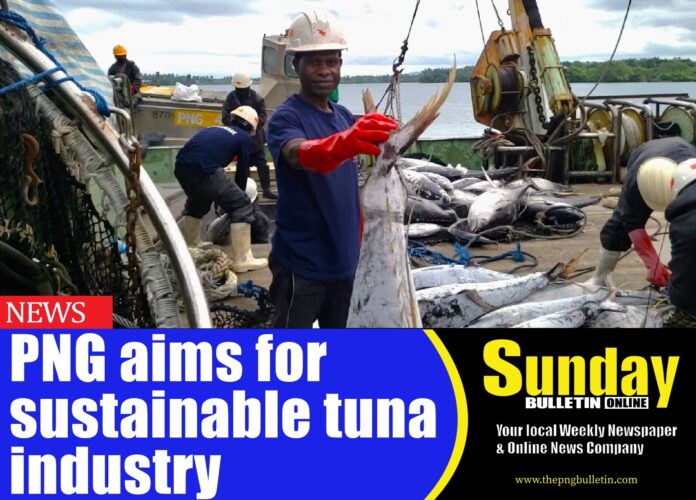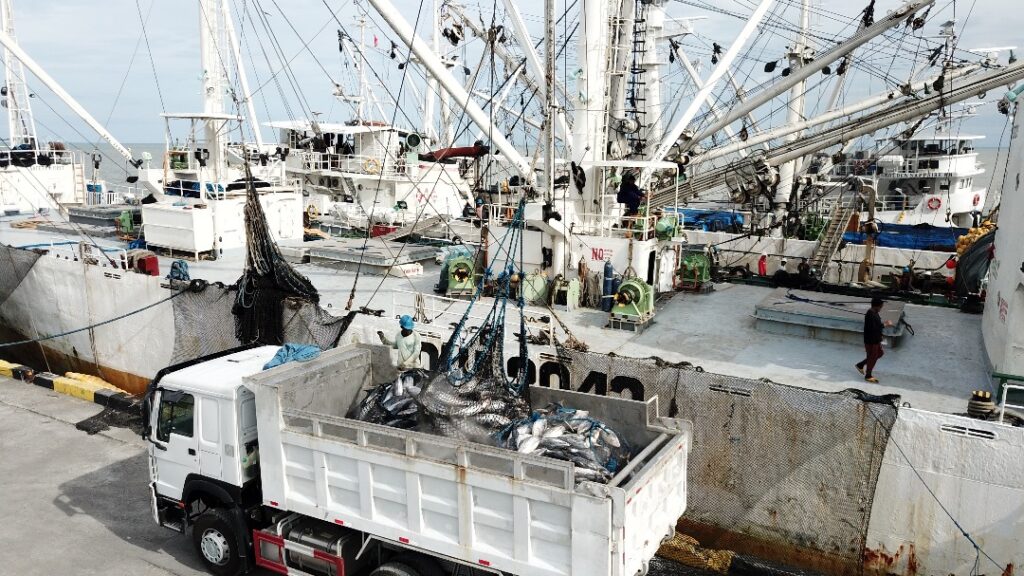
AS Papua New Guinea approaches its 50th Independence Anniversary later this year, in the Fisheries space, it is fitting that World Tuna Day 2025 presents a meaningful opportunity for reflection on past achievements and renewed ambition for the future of the nation’s fisheries sector.
Globally, tuna is a pillar of the marine economy, and over the years, Tuna has contributed significantly to the economic growth of PNG and the wider Pacific region.
This year’s theme, “Yes We Can,” captures a renewed commitment to sustainable practices and to asserting greater national control over the marine resources—particularly tuna, one of PNG’s most valuable assets.
PNG stands together in solidarity with the region, recognizing that its shared tuna resources present a strategic opportunity to develop collective and inclusive investment pathways.

According to the United Nations, more than 7 million metric tons of tuna are harvested annually, accounting for 20% of the value of all marine capture fisheries and over 8% of globally traded seafood.
For PNG, the significance of tuna goes even deeper—it sustains thousands of livelihoods, supports communities, and contributes essential revenue to the national economy.
With the right policies and political will, this resource can drive long-term economic growth and sustainable practices.
But for too long, PNG’s tuna industry has been dominated by foreign fleets, with most of the value chain—especially processing and export earnings—occurring offshore. This imbalance is now being addressed.
The National Fisheries Authority (NFA), under the leadership of Managing Director Justin Ilakini, is spearheading two major policy initiatives: The National Tuna Domestication Strategy (NTDS) and a revised National Tuna Fishery Management Plan.
“These reforms will change the game,” Ilakini stated.
“This year, Prime Minister James Marape will launch the domestication policy for the first time in NFA’s history. It’s about ensuring more Papua New Guineans benefit from our tuna resources.”
The NTDS sets a bold but necessary target: to process 50% of the tuna caught in PNG waters within the country. This is not merely an economic objective—it is a step toward national sovereignty.
The initiative promises more jobs for locals, increased investment opportunities in onshore facilities, and greater capacity for PNG businesses to compete in the tuna value chain, while most importantly helping the country monetise its export revenue.
The long-term vision, as outlined by Prime Minister James Marape, is to achieve full domestic processing and contribute meaningfully to the Marape-Rosso Government’s goal of transforming PNG into a K200 billion economy by 2030.
These reforms are timely and vital. They represent more than policy—they reflect a shift in mindset. PNG must no longer accept being a raw resource exporter and rent seeker while others profit from its wealth. Through the NTDS and associated reforms, PNG is choosing to invest in its people, its economy, and its environment.
“As PNG marks World Tuna Day 2025, it is timely to reflect on the importance of protecting and sustainably managing our tuna stocks,” Ilakini said.
With new strategies now in place, Papua New Guinea is taking meaningful steps, not only to safeguard its marine resources, but also to shape a more sustainable and prosperous future for the country.
